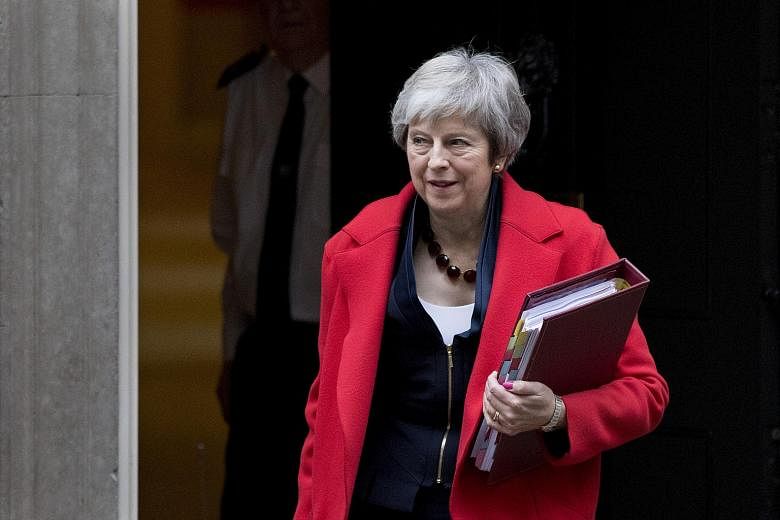LONDON (REUTERS) - British science and universities minister Sam Gyimah quit Prime Minister Theresa May's government on Friday (Nov 30), the sixth minister to resign in protest against her proposed Brexit deal with the European Union.
Gyimah, a junior-ranking minister who campaigned in the 2016 vote to keep Britain in the EU, said May's deal meant Britain would surrender its "voice and its veto" and that the Prime Minister should not rule out the prospect of a second referendum.
His resignation represents a further blow to May, who is trying to persuade her own lawmakers to approve the deal she struck with Brussels on Sunday.
May faces criticism from all sides including the Northern Irish party propping up her government, ahead of Britain's departure from the EU in four months.
"It has become increasingly clear to me that the proposed deal is not in the British national interest, and that to vote for this deal is to set ourselves up for failure," Gyimah wrote in a resignation statement published by the Daily Telegraph newspaper.
"We will be losing, not taking control of our national destiny."
Gyimah did applaud the "grit and determination" of May, who is in Buenos Aires attending a Group of 20 (G-20) summit.
Earlier on Friday, May conceded that Britain will not use the EU's Galileo space project for defence or critical national infrastructure, following a row over the post-Brexit future of the planned rival to the US Global Positioning System.
"Galileo is only a foretaste of what's to come under the government's Brexit deal," Gyimah said in his statement.
The row over Galileo erupted earlier this year when London accused the EU of shutting British businesses out of the project before Britain's exit next March.
The EU has said its rules prohibit it sharing sensitive security information with countries outside the bloc.
Britain will explore options to build its own Global Navigation Satellite System to help guide military drones, run energy networks and provide essential services for civilian smart phones, May's office said.
It will also work with the United States to continue accessing its GPS system.
"I have been clear from the outset that the UK will remain firmly committed to Europe's collective security after Brexit," May, who is attending the G-20 Summit in Argentina, said in a statement. "But given the Commission's decision to bar the UK from being fully involved in developing all aspects of Galileo, it is only right that we find alternatives."
Britain told the EU earlier this year it would demand the repayment of up to £1 billion (S$1.7 billion) if the bloc restricted its access to Galileo.
A senior British official said the question of past contributions was still a "live issue" which would be discussed as part of talks on Britain's future relationship with the bloc.
In August, Britain said its UK Space Agency, with support from the Ministry of Defence, would start work on an alternative satellite system to Galileo to ensure its national security if it were barred from equal access to the EU programme after Brexit, setting aside £92 million for it.
"I cannot let our armed services depend on a system that we cannot be sure of. That would not be in our national interest," May said.
May's office said Britain's Overseas Territories and Crown Dependencies would be used to provide a global network of locations needed for the ground-based infrastructure and worldwide coverage.

